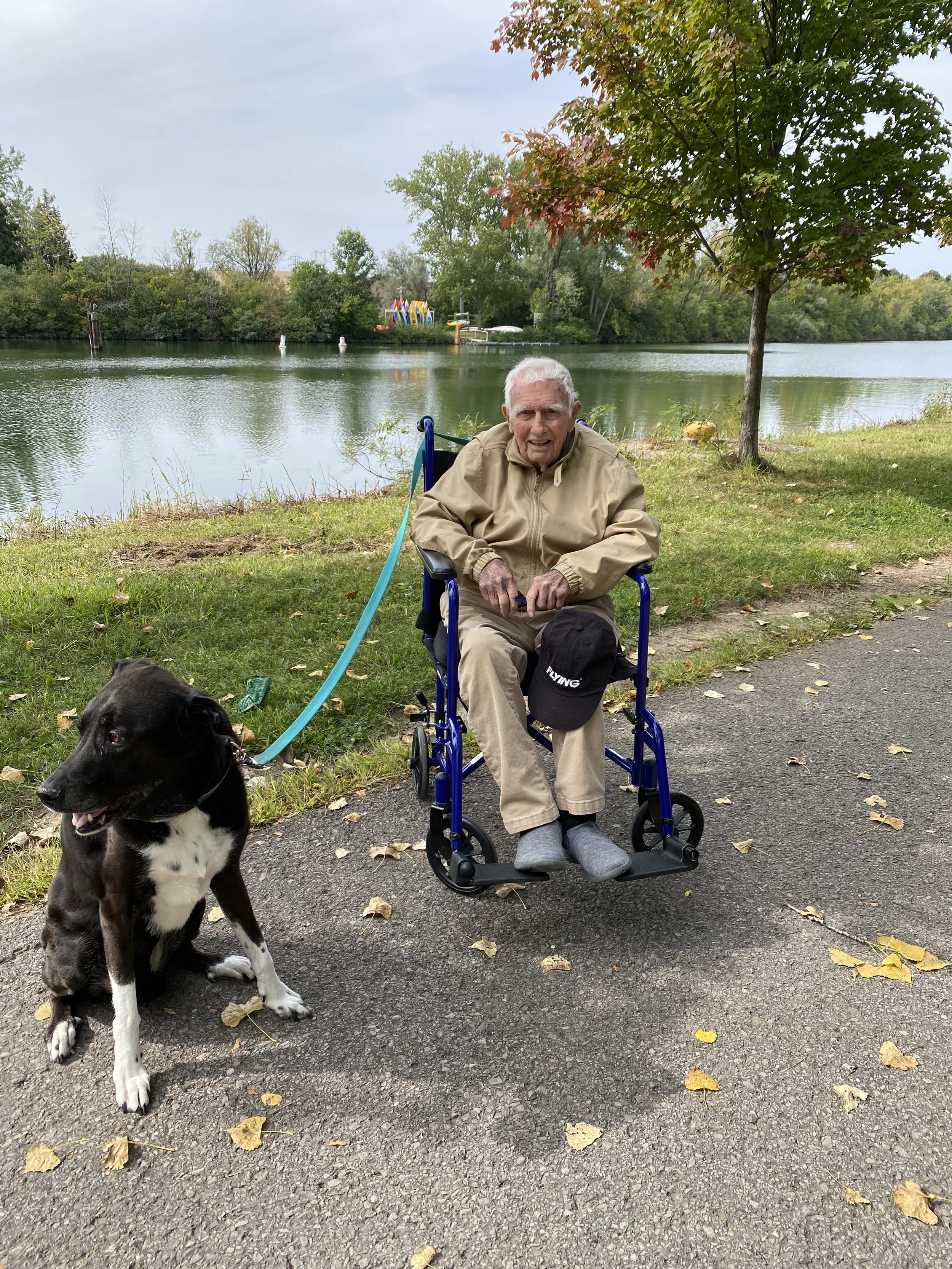Adapting Together: Managing Transitions with Your Elderly Parent
What happens when you have an elderly parent who needs 24/7 care? How do you help them adjust to a life full of change and transition?
I recently moved back to my hometown after living away for four decades. I did this for many reasons; participating in the care of my 98-year-old (now 99) father was a significant factor, along with a desire to be closer to family and to live in a smaller, more affordable city.
Not only did I move home but I moved in with my father. Living with my elderly father after living on my own for most of my life required some adjustment to say the least. And of course, this was a significant change for my father as well. I am happy to report that after six months we have found a way to happily coexist.
What I want to highlight here are the changes that my father is experiencing and their effect. Imagine a steady decline in your late 90’s. You lost your wife who you were with for close to 70 years. You were a vibrant, independent individual who was driving, working, and golfing until the age of 95 when you experienced debilitating back issues requiring bed rest and rehab for about a year. You were fortunate to have amazing caregivers and you have a large family many of whom live in the area pitching in. But age has a way of catching up to you, your balance isn’t as good and you now have a fractured hip due to a fall. AND dementia is setting in which is scary and confusing.
It’s a rather drastic change in circumstances. All of a sudden, you need more care. You need to depend on your family more than ever. You were always the one who took care of them and now your independence is almost completely gone. It’s challenging, demoralizing, and frustrating. The overriding thought is that you no longer feel useful.
So how do you help your parent maintain some independence and continue to feel useful?
Making decisions: It is all too easy to jump in and make all the decisions. Unfortunately, that will make them feel even more dependent on you which will make them feel even more useless. So ask them the big questions like how they want to live their life and what is important to them. It’s also essential to ask them everyday questions like what they want to eat, what they want to wear when they get up in the morning, what they want to read and watch on TV, where they want to go, and who they want to see. Even if they say they are ok with you making the decisions, asking them what they want is still important.
Engaging in conversation: Ask them questions about their life. I am always so surprised at the stories my father shares that I never knew about. He has lived almost 100 years! He was in WWII, had a successful business, flew planes, and traveled extensively. There is a tremendous amount of life experience and interesting stories to be heard.
Getting out of the house. It’s important to get them out of the house even if it’s just to go for a drive. We often tour one of the Finger Lakes, go to jazz concerts, attend an air show, or go to the library to find new books. As my father ages, his desire to leave his home has decreased considerably. I still ask.
Socializing with family and friends. My father is always asking if anyone is stopping by today. Socialization keeps him connected and engaged.
Showing respect and patience: We are all human beings who deserve to be treated with respect and consideration. Elderly parents feel bad enough about their circumstances and often feel like a burden. Showing them respect and patience helps them maintain their dignity.
One caveat relates to your parent’s physical and mental capacity to care for themselves and make decisions that affect their well-being. Of course, we want them to be safe. Finding the right balance between caring for them and still giving them some say in how they live their life can be challenging. My experience is that it takes a village to care for my elderly parent and I am grateful that we have a sizeable one!

